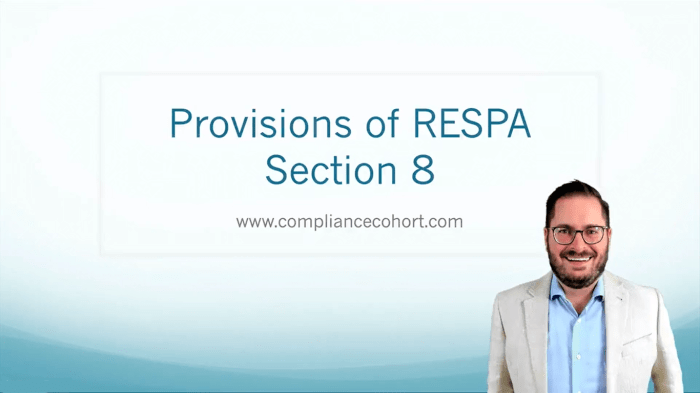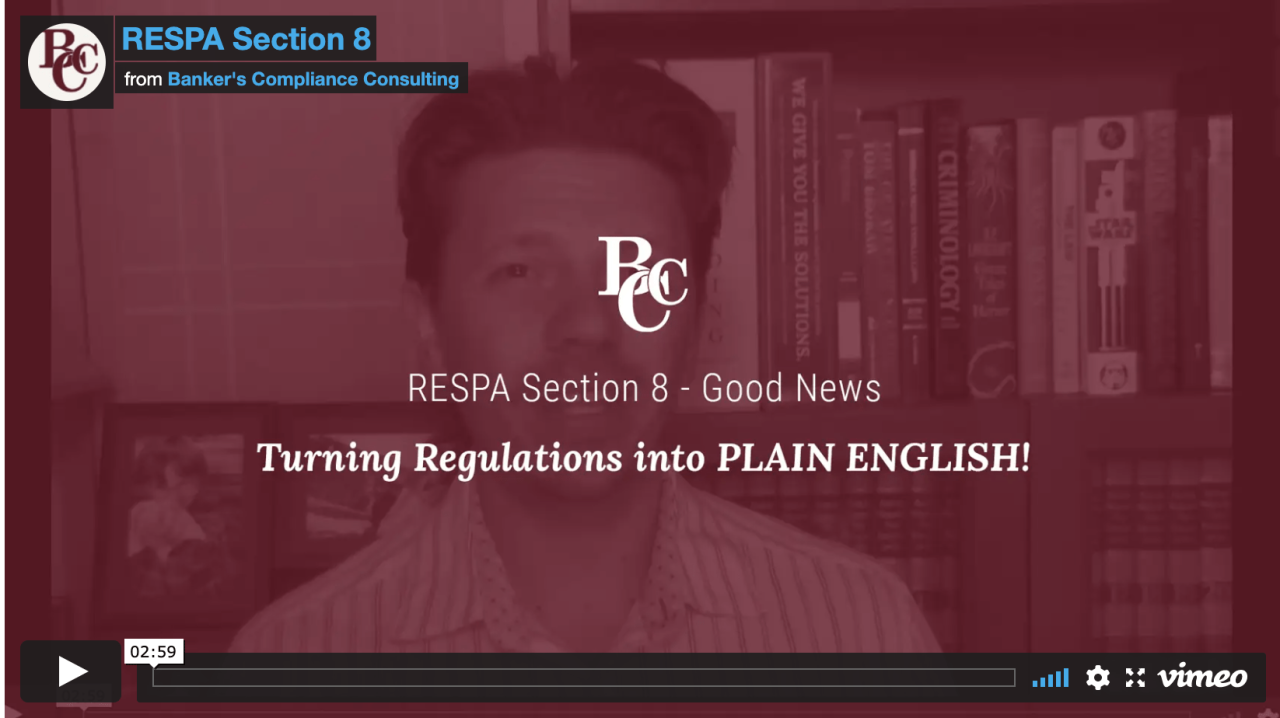Section 9 of respa prohibits a seller from – Section 9 of the Real Estate Settlement Procedures Act (RESPA) prohibits sellers from engaging in certain practices that may unfairly influence the outcome of real estate transactions. This law aims to protect consumers and ensure transparency in the home buying and selling process.
The specific actions prohibited by Section 9 include requiring buyers to use specific settlement service providers, accepting kickbacks or referral fees for referring business to certain providers, and imposing conditions on the buyer’s choice of providers.
Prohibited Acts Under Section 9 of RESPA

Section 9 of the Real Estate Settlement Procedures Act (RESPA) prohibits certain practices by sellers in real estate transactions. These prohibited acts are designed to protect consumers from unfair or deceptive practices and ensure transparency in the real estate market.
The specific actions prohibited by Section 9 of RESPA for sellers include:
- Requiring the buyer to use a particular title insurance company or other settlement service provider.
- Paying or receiving any fee, kickback, or thing of value for referring business to a settlement service provider.
- Giving or receiving any unearned fee or payment for settlement services.
- Making any false or misleading statements about settlement costs or services.
These prohibited practices violate Section 9 because they create a conflict of interest for the seller and can lead to inflated costs or inferior services for the buyer.
Violations of Section 9 can result in penalties and consequences, including:
- Fines and imprisonment
- Restitution to the buyer
- Injunctions against future violations
Exemptions and Exceptions to Section 9

Section 9 of RESPA includes certain exemptions and exceptions that allow sellers to engage in certain activities that would otherwise be prohibited. These exemptions are designed to allow for flexibility and efficiency in the real estate market while still protecting consumers.
The most common exemptions to Section 9 include:
- The “bona fide employee” exemption:This exemption allows sellers to refer buyers to settlement service providers that are bona fide employees of the seller.
- The “controlled business arrangement” exemption:This exemption allows sellers to refer buyers to settlement service providers that are controlled by the seller or an affiliate of the seller.
- The “good faith” exemption:This exemption allows sellers to refer buyers to settlement service providers that they reasonably believe are in the best interests of the buyer.
To qualify for these exemptions, sellers must meet certain conditions and requirements. For example, sellers must disclose any financial relationships they have with settlement service providers and must not coerce buyers into using those providers.
It is important to note that these exemptions are limited and sellers should carefully consider whether they qualify before relying on them.
Enforcement of Section 9
The Department of Housing and Urban Development (HUD) is responsible for enforcing Section 9 of RESPA. HUD can investigate alleged violations of Section 9 and take appropriate enforcement actions, including:
- Filing lawsuits
- Issuing fines
- Seeking injunctions
Buyers who believe that their rights under Section 9 have been violated can file a complaint with HUD. HUD will investigate the complaint and determine whether to take enforcement action.
If HUD finds that a violation of Section 9 has occurred, it can impose a variety of penalties, including:
- Fines of up to $10,000 per violation
- Imprisonment of up to one year
- Restitution to the buyer
- Injunctions against future violations
Implications for Sellers and Real Estate Transactions: Section 9 Of Respa Prohibits A Seller From

Section 9 of RESPA has a significant impact on the conduct of sellers in real estate transactions. Sellers must be aware of the prohibited acts under Section 9 and must take steps to ensure that they do not violate these prohibitions.
Sellers can comply with Section 9 by:
- Allowing buyers to choose their own settlement service providers
- Not paying or receiving any fees or kickbacks for referrals
- Providing buyers with clear and accurate information about settlement costs and services
By complying with Section 9, sellers can avoid legal liability and protect the interests of their buyers.
Quick FAQs
What specific actions are prohibited for sellers under Section 9 of RESPA?
Section 9 prohibits sellers from requiring buyers to use specific settlement service providers, accepting kickbacks or referral fees for referring business to certain providers, and imposing conditions on the buyer’s choice of providers.
What are the penalties for violating Section 9 of RESPA?
Violations of Section 9 can result in civil penalties of up to $10,000 per violation, as well as potential criminal charges.
What exemptions exist to Section 9 of RESPA?
Section 9 does not apply to transactions involving a seller who is not a “seller in the ordinary course of business,” such as an individual selling their own home.